College leaders, politicians condemn Supreme Court ruling banning affirmative action in college admissions
| Published: 06-29-2023 6:47 PM |
The Supreme Court decision Thursday banning the use of affirmative action in college admissions drew condemnation from education leaders, politicians, and others across the Pioneer Valley and state.
In statement after statement released shortly after the ruling, these leaders were highly critical of the ruling and vowed to continue efforts to uphold and advance diversity, equality and inclusion, regardless of what the highest court in the land ruled.
Gov. Maura Healey said she would continue to pursue greater representation in education in spite of the ruling in a statement signed by more than 100 higher education leaders, civil rights advocates and state legislators, including the leaders of the Five Colleges.
“Massachusetts will always be welcoming and inclusive of students of color and students historically underrepresented in higher education,” the statement read. “Today’s Supreme Court decision overturns decades of settled law. In the Commonwealth, our values and our commitment to progress and continued representation in education remain unshakable.”
The statement was also signed by presidents of the state’s community college systems, including Christina Royal, the outgoing president of Holyoke Community College who has long championed diversity, equity and inclusion policies in the state. In an interview, Royal said the ruling would affect the most vulnerable in their ability to access higher education.
“Historically, affirmative action and race-conscious admissions have shown to increase enrollment in racial minorities and underrepresented students,” she said. “Community colleges educate the majority of Black and brown students. And we want to make sure that the door is open for them beyond their experience at HCC.”
Community colleges like HCC have an open admissions policy, meaning they are unlikely to be affected by the Supreme Court’s ruling. But Royal said the school would still be on the front lines in supporting diversity efforts in higher education.
“We are going to continue to move forward in creating opportunities that can dismantle structural racism and create more opportunities for learning,” she said. “We know it’s the right thing for our students and it’s the right thing for our state.”
Article continues after...
Yesterday's Most Read Articles
 More than 130 arrested at pro-Palestinian protest at UMass
More than 130 arrested at pro-Palestinian protest at UMass
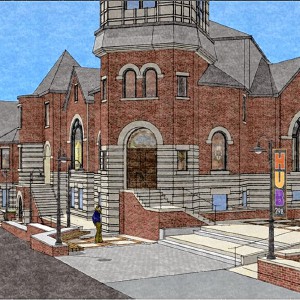 Public gets a look at progress on Northampton Resilience Hub
Public gets a look at progress on Northampton Resilience Hub
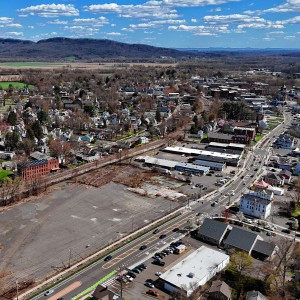 Northampton bans auto dealerships near downtown; zone change won’t affect Volvo operation on King Street
Northampton bans auto dealerships near downtown; zone change won’t affect Volvo operation on King Street
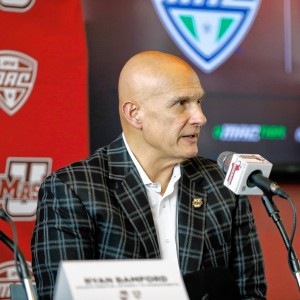 UMass basketball: Bryant forward Daniel Rivera to be Minutemen’s first transfer of the offseason
UMass basketball: Bryant forward Daniel Rivera to be Minutemen’s first transfer of the offseason
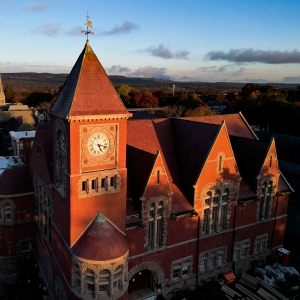 Town manager’s plan shorts Amherst Regional Schools’ budget
Town manager’s plan shorts Amherst Regional Schools’ budget
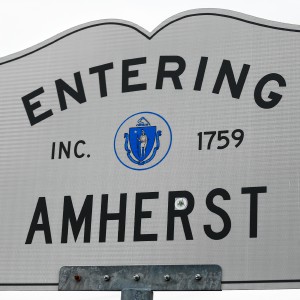 Police respond to alcohol-fueled incidents in Amherst
Police respond to alcohol-fueled incidents in Amherst
Kumble Subbaswamy, the outgoing chancellor at UMass Amherst, said in a message to students and staff that the campus would redouble its efforts to uphold diversity, equality and inclusion initiatives, regardless of what the Supreme Court says.
“Even absent this ruling, our commitment to upholding our values of diversity, equity and inclusion would drive us to deepen our investments in recruiting and welcoming students from diverse backgrounds,” Subbaswamy wrote in his message. “Building a diverse class is about more than whom we admit: It requires creating a welcoming and inclusive community. This work is critical, and it is ongoing.”
The schools belonging to the UMass system were currently working to assess how the ruling would affect campus admissions, according to a joint statement by Subbswamy, other UMass campus chancellors and UMass President Marty Meehan.
“University system officials are working with the Provosts and Admissions Directors on the five UMass campuses to assess how the University’s admissions processes may be influenced by these changes to the law,” the statement read. “The University of Massachusetts will continue to follow the law, and will do so while sustaining its deep and longstanding commitment to diversity, equity and inclusion.”
State Sen. Jo Comerford, D-Northampton, who chairs the state’s Joint Committee on Education, said Massachusetts would not yield in its efforts make education more inclusive.
“Education can help close the aching racial wealth gap, dramatically improve health outcomes, and open up myriad doors to opportunity and equitable economic growth,” she said in a statement. “At this moment — perhaps more than ever before — I am heartened by the [Massachusetts] Senate’s generational investment in public higher education in the fiscal year 2024 budget and the work ahead to make community college free.”
U.S. Rep. Jim McGovern, D-Worcester, also criticized the ruling, saying he sided instead with the dissent by Supreme Court Justice Ketanji Brown Jackson.
“By eliminating affirmative action, a corrupt Supreme Court is now denying racial justice,” McGovern wrote on Twitter. “I agree with Justice Brown Jackson: ‘Deeming race irrelevant in law does not make it so in life.’”
In a statement by Smith College, outgoing President Kathleen McCartney and President-elect Sarah Willie-LeBreton said they would comply with the Supreme Court’s decision, but would continue to work to maintain the diversity of the student body.
They noted that the college had several programs that would continue to attract diverse students, such as elimination of loans from financial aid packages and partnering with nonprofits to attract students from low-income backgrounds.
“Our admissions process is a holistic one that considers various aspects of an applicant’s background and experiences — including grades, curriculum, extracurricular activities, work experience, geography, socioeconomic background and more — so that each applicant’s unique voice and perspective are fully appreciated,” the statement said. “To address society’s most pressing challenges, we need people whose backgrounds and experiences reflect those of our nation.”
Mount Holyoke College’s leaders shared a similar sentiment.
“Mount Holyoke will ensure that students of color, LGBTQ+ students, first-generation students and all students historically underrepresented in higher education are welcomed and valued on our campus and in our community,” said Lindsay Akins, a spokesperson for the college. “This Supreme Court ruling will not change Mount Holyoke College’s mission or our values.”
Michael Elliott, president of Amherst College, referred to the court’s ruling as a “grave disappointment.”
“The deeply unfortunate decision by the United States Supreme Court constrains how we consider students for admission, but it will not, and it cannot change our dedication to that mission,” he said in a video statement put out by the college. “Together we remain resolute in our commitment to recruit and to support a diverse community of scholars within the bounds of the law, and in light of this decision we’re exploring new ways of expanding access and opportunity.”
At Hampshire College, which had previously announced it would take in students from New College in Florida fleeing the effects of conservative policies by Florida Gov. Ron DeSantis, the court’s decision was viewed as an erasure of racial realities.
“Hampshire College remains steadfastly committed to its aspiration to become an anti-racist institution, and to engaging honestly in the difficult work that requires,” said Jennifer Chrisler, a spokesperson for the college. “We recognize that deliberate and affirmative action is required to counter and change inequitable structures and practices. The elimination of one tool — race conscious admissions — does not prevent us from imagining and implementing other strategies to counter racialized practices that marginalize students of color.”
U.S. Sen. Ed Markey, speaking from the John F. Kennedy Federal Building in Boston, referred to the current Supreme Court as “far-right” and “illegitimate,” and said the court had made it more difficult to achieve equality in education.
“This extremist court has made the United States a more unequal place than it already was, and betrayed their responsibility to protect the rights of every American,” he said. “They’ve made the ivory tower taller for those who are not among the wealthy, who are not among the well-connected few.”
The Massachusetts Teachers Association also condemned the court’s ruling in a statement issued by President Max Page and Vice President Deb McCarthy.
“Even as the Supreme Court has thrown out the use of race as a consideration in admissions, preferences for the children of wealthy donors, children of alumni and athletes remain,” the statement said. “While our state Legislature doesn’t have the power to overturn a terrible ruling by the Supreme Court, there is more we can do to protect and improve access to higher education in our state, despite this setback.”

 State Senate budget funds free community college for all
State Senate budget funds free community college for all ‘We can just be who we are’: Thousands show support for LGBTQ community at Hampshire Pride
‘We can just be who we are’: Thousands show support for LGBTQ community at Hampshire Pride Doors open at Tilton Library’s temporary home at South Deerfield Congregational Church
Doors open at Tilton Library’s temporary home at South Deerfield Congregational Church Area property deed transfers, May 2
Area property deed transfers, May 2
